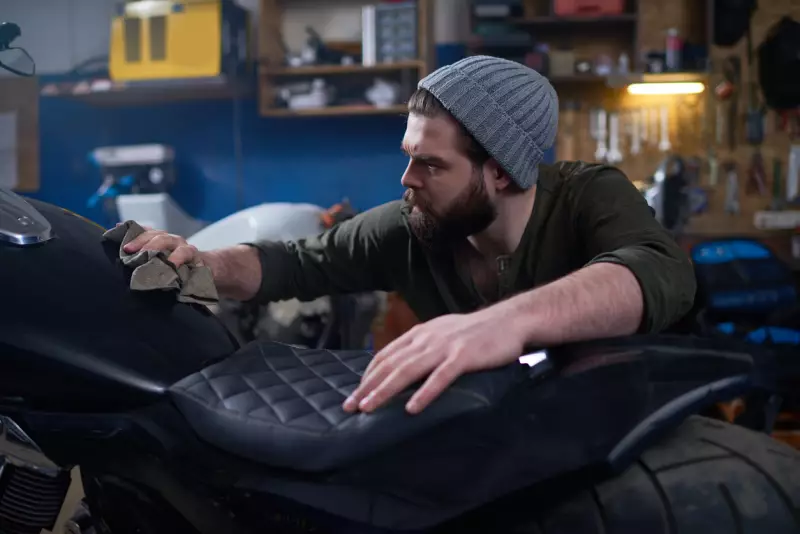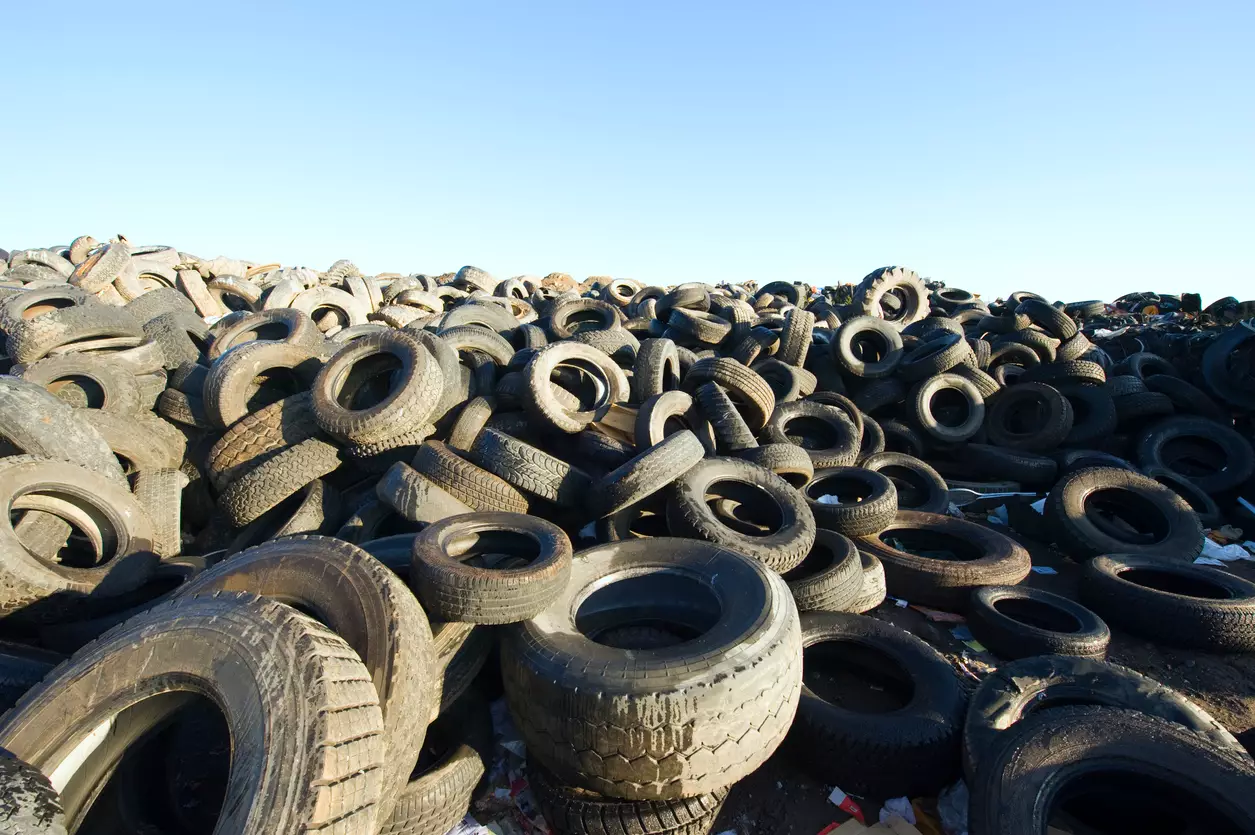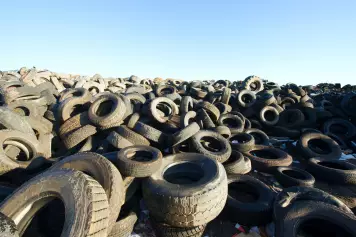Are you thinking of trading or selling your motorcycle? Then, you should consider your used motorcycle's value. A well-maintained motorcycle can keep up to 70% of its value years after you purchase it.
With great value, you can trade or sell your motorcycle at a fair price. It will be easier to pull the negotiation odds in your favor.
In this guide, we will cover all the details you need to know to land a good deal.
Factors That Affect the Value of a Used Motorcycle
Many factors can affect your motorcycle’s value. Here are some of the most critical ones that you must consider:
Condition
Up to 70% of used motorcycle values can be retained if they are well-maintained. Hence, keeping your motorcycle in good physical and mechanical condition is very important. A motorcycle with an updated maintenance history and minimal repairs has a higher value.
Conversely, if your motorcycle shows signs of neglect or damage, such as faded paint, rust, or engine issues, its value will be lower.
Age and Mileage
Age and mileage are critical factors when you evaluate used motorcycle value. Newer, less-ridden motorcycles often fetch higher prices.However, it’s important to understand how mileage impacts value. Generally, motorcycles that have accumulated more miles are viewed as less valuable, but how many miles is considered "a lot" for a motorcycle can vary by make and model. For instance, sports bikes may show significant wear after 25,000 miles, while well-maintained touring bikes can easily last 50,000 miles or more. In either case, a thorough check of the motorcycle’s condition will help you gauge its true value.
For example, a well-maintained five-year-old motorcycle with 10,000 miles might out-value a two-year-old model with 30,000 miles. The deciding factor will be each motorcycle's condition and upkeep.
Brand and Model
Some motorcycle brands and models have higher used motorcycle values than others. For example, motorcycles from brands like Harley-Davidson and BMW often have higher selling or trading values. These two brands are known for their reputation, quality, and durability.
Market Demand
Current market demands can also affect used motorcycle values. Certain styles can be more in demand due to their aesthetic values or popularity.
For example, from 2000 to 2010, cruisers dominated the motorcycle market in the US based on the percentage of registrations. However, their popularity declined in the following years because of the aging boomer generation that patronized them.
Though cruisers are still dominant, they are no longer as popular. Instead, people started buying other styles, like scooters and touring motorcycles.
Customization and Modifications

Many motorcycle owners customize and modify their vehicles to fit their tastes and needs. These changes can either add to or detract from the motorcycle’s selling value.
High-quality customizations and upgrades can increase used motorcycle values, provided they still appeal to the general public. On the other hand, overly personal customizations can make the vehicle less appealing. The general public may see the changes as too eccentric or vulgar, reducing the vehicle’s value.
How Much Is My Motorcycle Worth?
You can use different methods to get an idea of how much your motorcycle is worth. Here are some of these methods:
Using Online Appraisal Tools
Use online tools from third-party websites, such as the following:
- Kelley Blue Book
- Powersport Buyers
- Cycle Trader
- NADA (National Automobile Dealers Association)
These online tools will require you to input your motorcycle’s details, such as model, make, year, and condition. You will then get an estimated value for your vehicle.
However, keep in mind that these values are just estimates. The results may not include local market conditions or any customization done on the vehicle.
Dealership Appraisal
Another option you can consider is to get your motorcycle professionally appraised at dealerships. Dealerships provide professional assessments through qualified appraisers. These appraisers have industry knowledge and can accurately assess used motorcycle values.
Keep in mind that dealerships often offer lower trade-in values compared to what you might get in private sales. However, if your vehicle has customizations or is a limited edition or rate, go for professional appraisals.
Local Market Research
You can also scan classified ads and online marketplaces for postings of similar motorcycle models. Check the price posted for each model and how long these posts have been up. Doing this will give you an idea of which price range people buy your motorcycle model for.
Steps to Determine the Accurate Value of Your Motorcycle
An accurate evaluation of your motorcycle is necessary to get the best deal from it. Here is a step-by-step guide on how you can get an accurate used motorcycle value before putting it on the market:
Identify Your Valuation Type
You can consider two types of valuation for your used motorcycle: book value and market value.
Book value comes from pricing guides or manufacturer estimates. This valuation considers factors such as the following to give a baseline estimate of the vehicle's worth:
- Motorcycle's make, model, mileage
- Motorcycle’s physical and mechanical condition
- Any additional features
Additionally, performing a motorcycle VIN check can provide important information, such as accident history or title issues, which can also impact the book value.
Market value, however, offers a more dynamic approach. It considers the current local market conditions, including supply and demand for similar motorcycles in your area. This method often provides a more realistic picture of what potential buyers might pay for your bike.
Choosing the right valuation method depends on your specific circumstances and goals for the trade-in. Understanding both can help you negotiate a fair deal when it's time to part with your current ride.
Gather Relevant Documents
Gather all relevant documentation before you initiate the trade-in or selling process for your motorcycle. You can include the following:
- The motorcycle's title
- Service and maintenance records
- Receipts for any modifications or customizations
These documents provide a clear history of your motorcycle's maintenance. They demonstrate your commitment to its upkeep. They also indicate any improvements or modifications you make to the bike.
With the paperwork readily available, you can streamline the trade-in and selling process. You can also strengthen your negotiating advantage for your used motorcycle value.
Inspect the Motorcycle and Document Its Current Condition
Before trading in or selling your motorcycle, evaluate its condition. This self-assessment can involve the following steps:
- Carefully examine your motorcycle from multiple angles. Pay close attention to both cosmetic and structural parts.
- Start the engine and listen for any unusual noises. Check all functions to confirm they're working properly.
- Make a detailed list of any existing issues, such as:
- Scratches, dents, or paint chips
- Worn tires or brake pads
- Leaks or mechanical problems
- Signs of rust or corrosion
4. Take high-quality, well-lit photos of your motorcycle, including:
- Full-body shots from various angles
- Close-ups of any damage or wear
- Images of the odometer and instrument panel
- Pictures of any custom features or upgrades. You can also enhance photo quality
to make your images sharper and clearer, ensuring potential buyers get an accurate view of your motorcycle.
This thorough documentation helps you realistically assess your used motorcycle's value. It also provides transparency during negotiations with potential buyers and dealers and can prevent disputes about the motorcycle's condition after the trade-in process begins.
Get Evaluation From Multiple Sources
Gather information from multiple sources for used motorcycle values rather than relying on a single estimate. You can start with various online valuation tools that provide a baseline figure based on your motorcycle's make, model, year, and general condition.
However, these tools often rarely account for variations or unique features of your bike.
To complement these online tools, consider seeking a professional appraisal. An experienced appraiser can provide a more accurate evaluation. They consider factors that online tools might miss, such as the overall condition, any modifications, or rare features that could affect the value.
Additionally, invest time in researching local market listings for similar motorcycles. This step gives you insight into real-world pricing in your area, which can differ from national averages.
Maximizing Your Motorcycle's Resale Value

Before you sell or trade in your motorcycle, make sure that you know how to maximize its resale value first. There are three main points that you can focus on:
Meticulous Upkeep Pays Off
Keep up with regular maintenance to preserve used motorcycle value over time. Prioritize essential aspects like oil changes, tire replacements, and brake checks. A well-documented maintenance history shows that the motorcycle has been cared for, enhancing its value.
Aesthetics Drive Desirability
First impressions matter. A clean and well-presented motorcycle attracts more buyers and can command a higher price. To improve its appearance, consider professional detailing or making minor repairs, such as touching up paint chips or replacing worn-out grips.
Strategic Timing Maximizes Returns
The time of year can influence motorcycle sales. Spring and early summer are often the best times to sell, as the weather is favorable for riding, and demand is higher. Conversely, selling during the winter months may result in lower offers.
Common Mistakes to Avoid When Valuing Your Motorcycle
When you trade in or sell your motorcycle, avoid these common mistakes to guarantee a smooth and fair transaction:
Set Prices Emotionally
Don’t price your motorcycle based on your emotional attachment to it. Your emotional attachment can potentially cause you to price too high. Be realistic and base the price for your used motorcycle value on objective factors like age, mileage, and condition.
Ignore Market Trends
Stay informed on current motorcycle market trends. Market trends can change over time, and ignoring these changes can result in your pricing deviating from the general average. Research recent sales of similar models and adjust expectations based on how much buyers are willing to pay.
Fail to Document Thoroughly
Remember to document your vehicle’s condition and other details. Take clear, high-quality photos from multiple angles, including close-ups of any damage or wear. Make sure to maintain a record of all modifications and upgrades made to it. Doing so will help you avoid misunderstandings or potential buyer disputes about your used motorcycle's value.
Knowing your motorcycle's worth is crucial for getting a fair deal. Factors like condition, age, mileage, brand, and market demand significantly impact value. Use online appraisal tools, seek professional evaluations, and research local market prices to accurately assess and maximize your motorcycle's value.




















